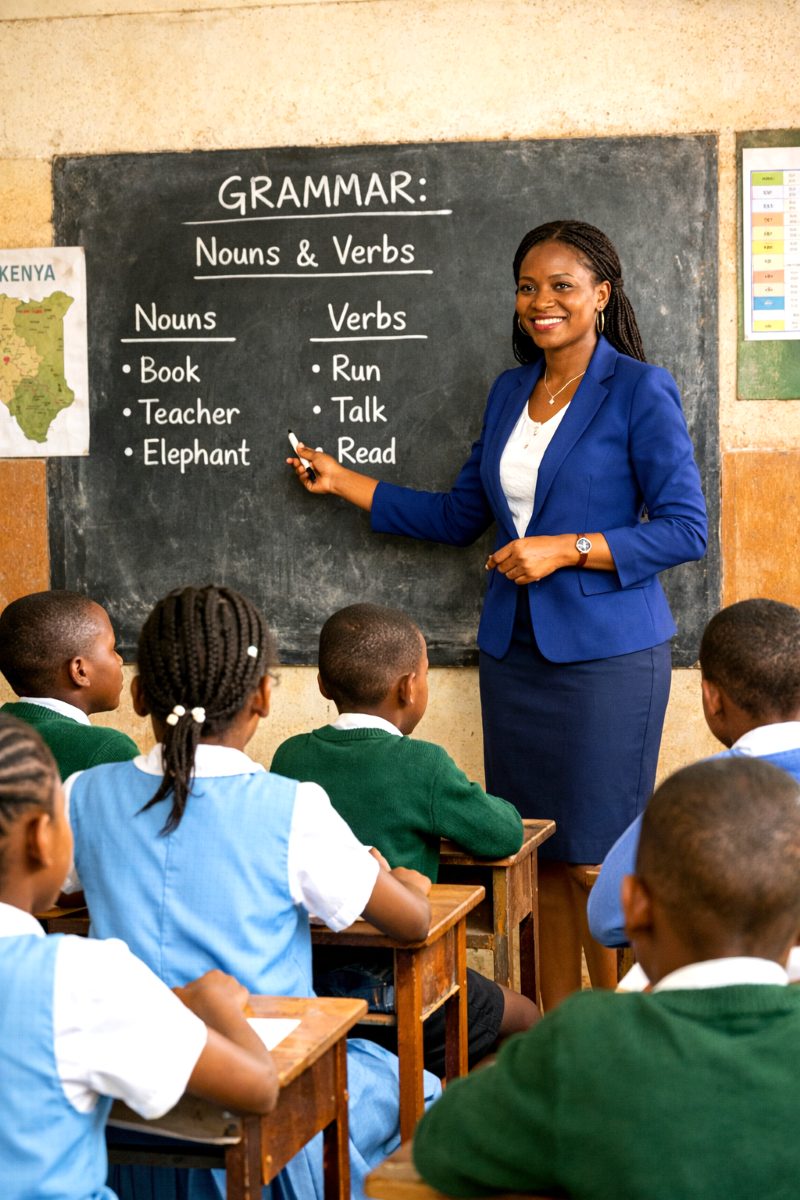The release of the Grade 10 Curriculum Designs by the Kenya Institute of Curriculum Development (KICD) marks a significant phase in the implementation of the Competence Based Curriculum (CBC) in senior secondary.
KICD invited feedback from stakeholders regarding the aforementioned curriculum designs by August 31st 2024. My specialty is English and Literature informed my analysis of the curriculum designs for the two learning areas – 122 pages for English and 80 pages Literature in English.
The disintegration of English and Literature will surely accord the learners sufficient and unconstrained space to explore the two components independently with sufficient depth. The grammar strands of word class, phrases, clauses as well as syntactic components will receive sufficient time allocation for coverage.
Unlike English, Literature in English will be an optional subject, with areas of study encompassing Oral Literature, Poetry, Fiction and Nonfiction. Senior secondary is largely an advancement of the knowledge encountered at preceding levels. This will require the literature teacher to be exceptionally creative lest learners abandon literature.
However, a humongous problem is likely to be passed on to senior secondary. There has been widespread lamentation regarding the state of curriculum implementation and quality of learning in junior secondary. A number of teachers have outlined the difficulties undergone while handling literature in junior secondary.
Currently, junior secondary has a prescription of class readers meant to build their foundation of literature. They include Daughters of Nature, a poetry anthology and Bridges without Rivers, an anthology of short stories both by Access Publishers. Others include Tobby’s Diary, a novella, as well as Bekah’s Misfortunes, an anthology of short stories, all by East African Educational Publishers.
Unlike course books which are supplied by the Ministry of Education, class readers are the parents’ own arrangement, or at best, provided by the school. Very few schools have access to these books. I have encountered several junior school teachers who confess not having set eyes on these readers, leave alone their learners.
As practical and as ‘competence-based’ the learning and classroom activities are supposed to be, stakeholders must ensure that a larger portion of the learning outcomes as spelt out in the curriculum frameworks are covered before a year elapses. It is detrimental when learners complete a calendar year with just little coverage of the year’s stipulated content. Transitioning to the next academic year with scanty syllabus coverage is burdensome and stressing to the teacher in the subsequent level of learning.
Safeguarding the Future: Protecting Children and Youth from Exploitation
The Grade 10 literature frameworks stipulate content for Kenyan literature (memoirs/ autobiographies, poetry, the novel, short stories and the play). My expectations are, therefore, that the learners that will be joining the senior secondary will be ready for the rigorous and intensive study and analysis of the splendour characterizing the aspects of Kenyan literature.
Nigerian literature has received global acclaim because it is primarily celebrated at home. The symbols, figures of speech and other literary aspects are embraced by Nigerians both at home and abroad. That is what I expect to see in our literature books, showcasing the appreciation and pride of our Kenyan literature.
Professionals such as journalists, editors, legal practitioners, public speakers among others are known to have been literary enthusiasts during their studentship. For the sake of such professions, KICD must develop a curriculum that enhances in-depth exploration of the aspects of language and literature as opposed to the shallow coverage as seen in the junior school.
I have had an opportunity to teach English/ Literature in the international curricula – Cambridge, Edexcel, etc. – and I have always prayed for such an engaging learning environment to be available for every Kenyan child.
The learners should, for instance, get a chance to develop costumes fit for oral presentations, drama, etc. They should also have a chance to create their own narratives and make oral presentations and scores recorded for their formative assessments. This will enhance creativity and boost stage fright management. This will help us develop confident and creative future leaders.
As KICD embarks on finalization of the curriculum designs with stakeholders’ views at the fore, I look forward to more practical, exciting and thought-provoking models of learning Literature and English. This is the same prayer I have for the literature texts and other supplementary materials to be approved for the level. The literature texts should be a unifier, with morals applicable to all learners in the country – not just pertinent to a section of the country. Knowledge acquisition should be fun and inclusive.
By Wornicks Gisemba
The writer is a teacher of English at Nkoile Boys High School, Kajiado Central. He is also an author and editor.
Email: wornicksg@gmail.com Website: www.wornicks.co.ke
You can also follow our social media pages on Twitter: Education News KE and Facebook: Education News Newspaper for timely updates.
>>> Click here to stay up-to-date with trending regional stories
>>> Click here to read more informed opinions on the country’s education landscape






